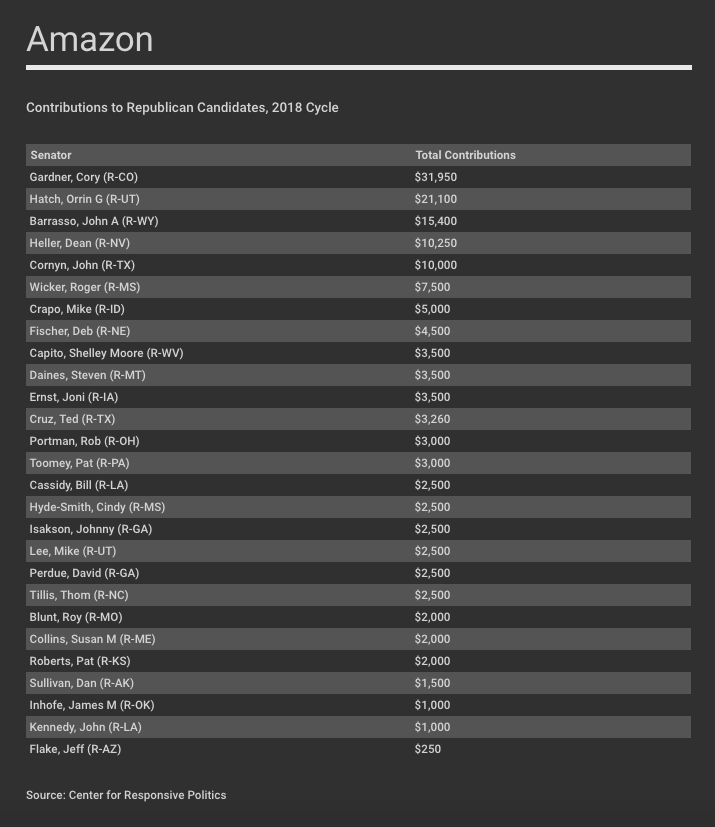With the mid-term elections fast approaching, there’s been a plethora of news coverage examining the influence of the technology industry on American politics. Specifically, many outlets have noted how major social media outlets provide a dangerous platform for fake news and extremist ideology. Other stories paint Silicon Valley workers as pioneers of progressivism, even as they reap the benefits of being corporate employees.
But these aren’t the only ways in which technology companies affect United States policies, and it’s easy to overlook their most old-fashioned method of acquiring influence: money. Companies like Amazon, Twitter, Google, and Facebook have poured hundreds of thousands of dollars into the campaigns of various congressional candidates, many of whom are running or re-running in the upcoming election.
And while it’s true that the overwhelming influx of money is donated to Democratic candidates’ campaigns, painting Silicon Valley companies as a “bastion of liberalism” doesn’t tell the whole story.
On first glance, the data supports the idea that companies like Google and Microsoft are staunchly pro-Democrat. For example, the Center for Responsive Politics reports that, in the 2018 election cycle, Microsoft Corporation donated $1,684,585 to Democratic congressional candidates, compared to $483,776 for Republicans. Similarly, out of the $2,143,048 that Amazon donated to candidates, about one-third went to Republican individuals.
However, examining the contrast between individual and political action committee contributions reveals that, while the people employed by these corporations may veer left, the official PACs representing the companies do not. Over half of the contributions from both Microsoft and Amazon’s PACs went to Republican candidates, with Republican candidates receiving $365,000 and $604,000 for their campaigns, respectively. The difference between Twitter’s individual and PAC donations is even more stark: 54 percent of PAC contributions went to Republicans, compared to the mere 1 percent of donations from individuals at Twitter.
Though relatively small in the grand scheme of political campaign funding, these contributions nevertheless act as direct support to candidates and, consequently, support for candidates’ policies.
Out of the 27 Republican senators who received money from Amazon in the past year, 26 of them voted to confirm Brett Kavanaugh. Notable recipients of Amazon money include Senator Jeff Flake (R-Arizona), who received $250, and Senator Orrin Hatch (R-Utah), who received $21,100, the second-highest sum among Amazon’s Republican recipients.
Likewise, Google’s PAC (which funds Democratic and Republican candidates more or less equally) gave $6,000 to Senator Ted Cruz (R-Texas) and $1,000 to Senator Lindsey Graham (R-South Carolina) during the 2018 election cycle. Among the recipients of donations from Facebook are Republican senators Marco Rubio (Florida), Cory Gardner (Colorado), and, once more, Cruz and Hatch.

Of course, the thousands of individuals that make up a massive corporation such as Amazon or Google do not have homogenous political beliefs, and, as these statistics show, such companies are using their wealth to fund politicians on both sides of the aisle.




